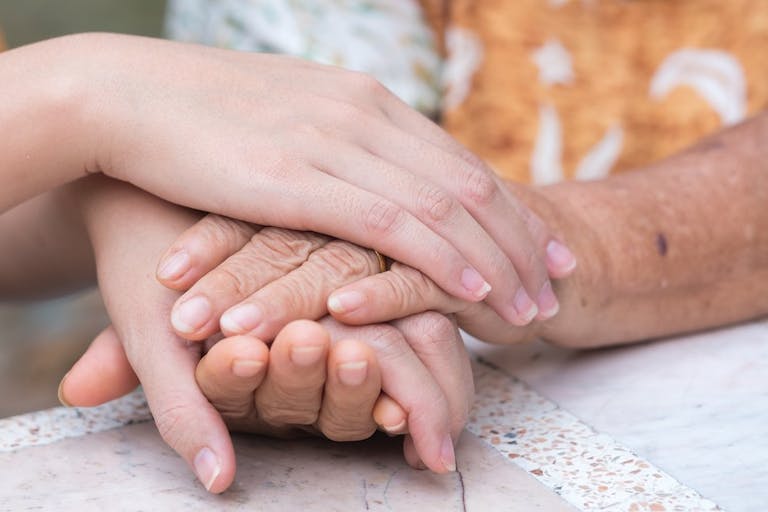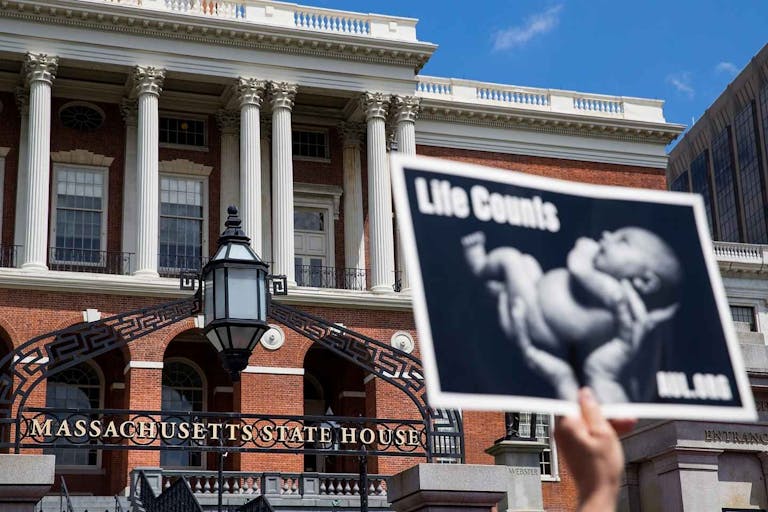"People have got some reservations." Labour MP @catecclesstour tells @KayBurley why some people may be opposed to the assisted dying bill. trib.al/Rx0iR33 📺 Sky 501, Virgin 602, Freeview 233 and YouTube

UK lawmakers: Encouraging loved ones to live instead of choosing assisted suicide is ‘coercion’
International·By Nancy Flanders
UK lawmakers: Encouraging loved ones to live instead of choosing assisted suicide is ‘coercion’
One of several lawmakers in the UK who is working to legalize assisted suicide in England and Wales claims that convincing a loved one not to go through with their planned suicide amounts to coercion.
In an interview with Sky News, Labour MP Cat Eccles told journalist Kay Burley that it’s essentially wrong for people to talk family members out of suicide in areas where physician-assisted death and euthanasia are legal.
The claim followed a comment from Burley, who said, “People who are against [the pro-assisted suicide bill] come on the programme and say to me, [they’re] worried about people being coerced by relatives and loved ones into doing something that they perhaps don’t want to do.” In other words, people perceive that relatives who are unwilling to be caregivers for their relatives might pressure them towards suicide if it is legal in their country.
Yet, Eccles replied, “Yeah, well, actually the evidence we’ve seen from other countries that have introduced assisted dying laws is that the most coercion that actually happens [is] with relatives trying to talk loved ones out of having an assisted death.”
According to Eccles, people are trying to persuade suicide-minded family members not to kill themselves — and this is a bad thing.
Though she offers no evidence to support this, Eccles is not the only lawmaker making such a claim.
During a debate at the second reading of the bill, MP Kim Leadbeater (who introduced the bill) also insinuated that it would be wrong and coercive for family members to prevent someone from accessing assisted suicide.
“Evidence from other jurisdictions shows clearly that coercion tends to happen the other way; what tends to happen is that families try to prevent the person from making the choice of an assisted death,” she claimed, though she also did not point to any of this ‘clear’ evidence.
And in Queensland, Australia, it’s illegal to try to talk a person out of assisted suicide. So if your child or spouse wants to commit suicide and you talk them out of it (or vice-versa), you could face seven years in prison.
Yet, there are great efforts made to ‘coerce’ able-bodied, “healthy” persons away from committing suicide.
Eccles and Leadbeater’s lack of evidence is telling. It is possible they are portraying as ‘coercion’ what is actually strong family support for a person to live, and determining that people were ‘coerced’ out of suicide because a large percentage of individuals who request “assisted death” do not go through with it.
A survey published by JAMA found that half of the patients who requested assisted suicide changed their minds after a few months and that patients with symptoms of depression were more likely to change their minds. According to the Oregon Health Authority, in 2023, 560 people reportedly received drugs to use for assisted suicide, but only 367 people went through with it, including 30 who had received the drugs in 2022. Could Eccles and Leadbeater be assuming that the 200+ individuals who did not take the drugs must have been ‘coerced’ to live?
“It is ridiculous to define the role of caring family members who attempt to persuade a person to live as being coercion,” Alex Schadenberg of the Euthanasia Prevention Coalition told Live Action News. “Whether we agree with the law or not, loving family members who oppose killing people are only offering the person an alternative, that is to live.”
Pressured to death
The legitimate area of concern surrounding euthanasia, assisted suicide, and coercion is not that people might be convinced to live, but that they might be pressured to die.
The act of legalizing assisted suicide alone is pressure, as it sends the message that the ill and disabled should consider dying. It implies that they should want to die, assuming that their lives must be too difficult to continue living. In research published in 2023 by the Ulster Medical Society, palliative care consultant Matthew Doré wrote:
“I don’t want to be a nuisance” as one of my patients put it, and although sometimes is perceived as noble, is where I believe society should step in.
Even [without] mental illness, society has a deep responsibility to protect the most vulnerable, and who is the most vulnerable if not those who are open to suggestion or worse, pressurized?
Simply having the option of assisted suicide expressed is in itself, an acknowledgment this is an acceptable course of action, and thus acts as a ‘pressure to consider such’. I imagine that disabled people understand what it is to feel like a burden on society, they are only too aware of the implicit suggestion this creates. This explains why all the major organisations representing the disabled are opposed to such legislation as they are aware of being perceived ‘as a nuisance’.
No matter how caring your family is, this societal pressure would be exerted upon everyone who had a terminal illness, or in Canada and parts of Europe, self-described suffering. The pressure may be spoken or unspoken, but by creating an option, a door opens, in which consideration of an assisted suicide becomes real.
Article continues below
Dear Reader,
In 2026, Live Action is heading straight where the battle is fiercest: college campuses.
We have a bold initiative to establish 100 Live Action campus chapters within the next year, and your partnership will make it a success!
Your support today will help train and equip young leaders, bring Live Action’s educational content into academic environments, host on-campus events and debates, and empower students to challenge the pro-abortion status quo with truth and compassion.
Invest in pro-life grassroots outreach and cultural formation with your DOUBLED year-end gift!
Stories of individuals being directly pressured into assisted suicide are common. Nearly half (47%) of individuals who requested assisted suicide in Oregon in 2022 cited fear of being a “burden on their family, friends/caregivers” as their reasoning. In addition, many have reported that they have been pressured to apply for assisted suicide by healthcare workers and insurers.
Pressure from healthcare workers
In a report out of Ontario, a man identified as Mr. A., who lived with mental illness, substance abuse, and bowel disease, was advised by a psychiatrist to apply for euthanasia. Healthcare professionals eventually picked him up and drove him to the location where he was killed.
In July 2024, an investigative report published in the New York Post revealed that Canadians with disabilities are being pressured to “choose” euthanasia by medical staff. Featured in the report is Heather Hancock, who has spastic cerebral palsy and recounted the pressure she faced. “I wasn’t moving very well [in the hospital] and the nurse on my ward looked at me and said, ‘You really should consider MAiD. You’re not living. You’re just existing,'” she explained.
Roger Foley, who has cerebral ataxia, told the Post, “I’ve been pressured to do an assisted suicide. They asked if I wanted an assisted death. I don’t. I was told that I would be charged $1,800 per day [for hospital care]. Nurses here told me that I should end my life. That shocked me.”
This is a quite common tactic, as Schadenberg explained, “When you’re going through a difficult time and someone is telling you, ‘Oh, if I was in your situation, I would opt for MAID,’ well, that is not a helpful thing. Nearly every major hospital in Canada has a MAID team. These teams are each comprised of a couple doctors and a couple nurses who go throughout the hospital, making sure MAID is offered and available to people who want it. But they’re not just providing access to euthanasia, they are selling it.”
According to Alexander Raikin, who heavily researched Canada’s MAiD law, in June 2017, a year after euthanasia was legalized in Canada, only 61% of physicians followed all regulations. “Federal legislation at the time … required a 10-day waiting period between the request for euthanasia and the administered death to ensure that patients really did wish to die,” he said, “a safeguard that could be waived only if the patient was approved and on the verge either of losing capacity to consent or of imminent natural death. Yet according to the paper, euthanasia providers recorded expediting deaths for reasons including not only loss of capacity or imminent death but ‘persistent requests’ and ‘inconvenient timing of the death in relation to other familial life events.'”
People are also facing pressure to die from those who pay for their health care.
Universal health care
In nations that have taxpayer-funded universal healthcare, it is reportedly cheaper for the government to pay for a person’s physician-assisted death than to provide them with adequate health care.
Christine Gauthier, a Canadian army veteran and Paralympian, said she has been unable to access the medical equipment she needs for years, but when she complained, she was told she could access assisted death instead. Live Action News previously reported on Gauthier’s 2022 court testimony, during which she said that Veterans Affairs Canada offered her medical assistance in dying (MAiD) instead of the wheelchair ramp she requested.
In an interview, Gauthier said, “I have a letter saying that if you’re so desperate, madam, we can offer you MAiD, medical assistance in dying… I was like, ‘I can’t believe that you will… give me an injection to help me die, but you will not give me the tools I need to help me live.’ It was really shocking to hear that kind of comment.”
The notorious 2020 Canadian report, “Cost estimate for Bill C-7, Medical Assistance in Dying,” estimated there would be a $149 million savings in healthcare costs from euthanasia and assisted suicide in Canada in 2021. Canada’s government has been accused of urging doctors to promote MAiD to their patients for money-saving purposes, and some Canadian doctors have organized to resist.
In addition, a 2020 report from Scottish academics David Shaw and Alec Mortion likewise estimated that legalizing assisted suicide and euthanasia in the UK would offer significant financial savings for the National Health Service (NHS).
Private insurers also put pressure on disabled and ill persons. A 2019 report from the National Council on Disabilities (NCD) found evidence of patients being denied treatment by private insurers in Oregon, in favor of offering assisted suicide. “When assisted suicide is legalized in the context of the US healthcare system, it immediately becomes the cheapest treatment,” NCD said. “Direct coercion is not necessary. If insurers deny, or even simply delay, approval of expensive life-sustaining treatment, patients can be steered toward hastening their deaths – and sometimes insurers help them to do so” (emphasis added).
Palliative care doctors in the UK have been warning Eccles, Leadbeater, and other pro-assisted suicide MPs about the financial incentive of coercing people to die, but it seems these pro-death lawmakers are largely ignoring those concerns. Instead, they are worried that people might love their family and friends enough to help them overcome their desire to commit suicide — and that might prevent the government from reaching its cost savings goals.
It’s shocking to hear lawmakers argue that it’s unethical to save people from suicide. More than 700,000 people commit suicide each year, according to the World Health Organization, and strong efforts are made to prevent those deaths from happening. But when the person seeking suicide is chronically ill, facing a life-threatening diagnosis, or is disabled, suddenly suicide is acceptable and expected and it’s wrong to convince them that they are valuable, loved, and worthy of life — at least, according to Eccles.
Tell President Trump, RFK, Jr., Elon, and Vivek: Stop killing America’s future.
Live Action News is pro-life news and commentary from a pro-life perspective.
Contact editor@liveaction.org for questions, corrections, or if you are seeking permission to reprint any Live Action News content.
Guest Articles: To submit a guest article to Live Action News, email editor@liveaction.org with an attached Word document of 800-1000 words. Please also attach any photos relevant to your submission if applicable. If your submission is accepted for publication, you will be notified within three weeks. Guest articles are not compensated (see our Open License Agreement). Thank you for your interest in Live Action News!
Read Next

Massachusetts Health Department wants primary care to include abortion
Cassy Cooke
·More In International

Issues
SHOCK REPORT: New South Wales averages 20 'assisted deaths' weekly
Bridget Sielicki
·
Issues
Annual report shows increase in Canada's assisted deaths
Nancy Flanders
·
International
Dismembered infant found in freezer of Tokyo adult entertainment business
Angeline Tan
·
International
Faroe Islands parliament legalizes abortion up to 12 weeks
Angeline Tan
·
International
Woman recounts grandmother's euthanasia: 'She thought she was a burden'
Cassy Cooke
·More From Nancy Flanders

Issues
Annual report shows increase in Canada's assisted deaths
Nancy Flanders
·
Human Interest
Pro-life nuns send annual Christmas cards to abortion businesses across the US
Nancy Flanders
·
Investigative
Worker finds deceased 27-week baby inside San Diego porta-potty
Nancy Flanders
·
Pop Culture
Pro-abortion critics slam Gwen Stefani for partnering with Catholic Hallow app
Nancy Flanders
·
Human Interest
Twin born at 23 weeks fought to survive after brother's death
Nancy Flanders
·